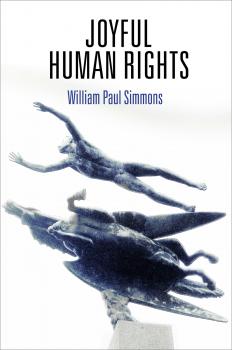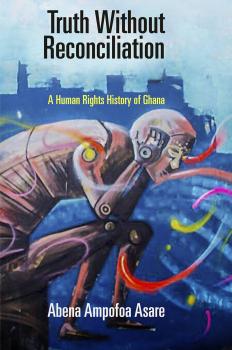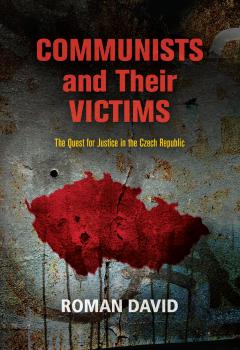ТОП просматриваемых книг сайта:
Pennsylvania Studies in Human Rights
Скачать книги из серии Pennsylvania Studies in Human RightsАннотация
Some of the most massive and persistent violations of human rights occur in African nations. In Human Rights Under African Constitutions: Realizing the Promise for Ourselves , scholars from a wide range of fields present a sober, systematic assessment of the prospects for legal protection of human rights in Africa. In a series of detailed and highly contextual studies of Ethiopia, Ghana, Guinea, Morocco, Mozambique, Nigeria, Rwanda, Senegal, South Africa, Sudan, and Uganda, experts seek to balance the socioeconomic and political diversity of these nations while using the same theoretical framework of legal analysis for each case study. Standards for human rights protection can be realized only through direct and strong support from a nation's legal and political institutions. The contributors to this volume uniformly conclude that a well-informed and motivated citizenry is the most powerful force for creating the political will necessary to effect change at the national level. In addition to a critical evaluation of the current state of human rights protection in each of these African nations, the contributors outline existing national resources available for protecting human rights and provide recommendations for more effective and practical use of these resources.
Аннотация
Selected by Choice magazine as an Outstanding Academic Title Creating Human Rights offers the first systematic study of a pioneering women's refugee movement and its challenge, as an international trigger case, to more conventional paths toward human rights policy development. Lisa S. Alfredson argues that such cases, which unfold in the context of a specific country and have profound impacts on international human rights efforts, have been neglected in research and pose a challenge to recent theorizing on human rights change. In the early 1990s, Canada witnessed the emergence of the world's first comprehensive refugee policy for women who were seeking protection from female-specific forms of violence—rape, domestic abuse, public stoning of adulterers, genital mutilation—while challenging a gender-biased system. Close examination of this novel movement, Alfredson contends, provides crucial insights into why and how states may articulate new human rights that set international precedents. Analyzing original empirical data and sociopolitical historical trends, the book documents the decisive global impacts of the movement while shedding light on the paradox of noncitizen politics and asylum seekers' little recognized political strength. Contrary to expectation, findings suggest transnational networks and pressures are not required for some forms of change. Rather, international trigger cases illuminate a range of other key actors and advocacy strategies leading, subsequently, to a more comprehensive understanding of human rights acceptance. In the case of the women's refugee movement, the convergence of human rights and noncitizen politics points toward a new dimension for human rights scholarship that, in the current age of globalization, is becoming critically important.
Аннотация
Bolokoli , khifad , tahara , tahoor , qudiin , irua , bondo , kuruna , negekorsigin , and kene-kene are a few of the terms used in local African languages to denote a set of cultural practices collectively known as female circumcision. Practiced in many countries across Africa and Asia, this ritual is hotly debated. Supporters regard it as a central coming-of-age ritual that ensures chastity and promotes fertility. Human rights groups denounce the procedure as barbaric. It is estimated that between 100 million and 130 million girls and women today have undergone forms of this genital surgery. Female Circumcision gathers together African activists to examine the issue within its various cultural and historical contexts, the debates on circumcision regarding African refugee and immigrant populations in the United States, and the human rights efforts to eradicate the practice. This work brings African women's voices into the discussion, foregrounds indigenous processes of social and cultural change, and demonstrates the manifold linkages between respect for women's bodily integrity, the empowerment of women, and democratic modes of economic development. This volume does not focus narrowly on female circumcision as a set of ritualized surgeries sanctioned by society. Instead, the contributors explore a chain of connecting issues and processes through which the practice is being transformed in local and transnational contexts. The authors document shifts in local views to highlight processes of change and chronicle the efforts of diverse communities as agents in the process of cultural and social transformation.
Аннотация
From the historical roots of AIDS activism in the struggle for African liberation to the everyday work of community education in Khayelitsha, Sustaining Life tells the story of how the rights-based South African AIDS movement successfully transformed public health institutions, enabled access to HIV/AIDS treatment, and sustained the lives of people living with the disease. Typical accounts of the South African epidemic have focused on the political conflict surrounding it, Theodore Powers observes, but have yet to examine the process by which the national HIV/AIDS treatment program achieved near-universal access. In Sustaining Life , Powers demonstrates the ways in which non-state actors, from caregivers to activists, worked within the state to transform policy and state-based institutions in order to improve health-based outcomes. He shows how advocates in the South African AIDS movement channeled the everyday experiences of poor and working-class people living with HIV/AIDS into tangible policy changes at varying institutional levels, revealing the primacy of local action for expanding treatment access. In his analysis of the transformation of the state health system, Powers addresses three key questions: How were the activists of the movement able to overcome an AIDS-dissident faction that was backed by government power? How were state health institutions and HIV/AIDS policy transformed to increase public sector access to treatment? Finally, how should the South African campaign for treatment access inform academic debates on social movements, transnationalism, and the state? Based on extended participant observation and in-depth interviews with members of the South African AIDS movement, Sustaining Life traces how the political principles of the anti-apartheid movement were leveraged to build a broad coalition that changed national HIV/AIDS policy norms and highlights how changes in state-society relations can be produced by local activism.
P. C. Chang and the Universal Declaration of Human Rights - Hans Ingvar Roth
Pennsylvania Studies in Human RightsАннотация
The Universal Declaration of Human Rights is one of the world's best-known and most translated documents. When it was presented to the United Nations General Assembly in December in 1948, Eleanor Roosevelt, chair of the writing group, called it a new «Magna Carta for all mankind.» The passage of time has shown Roosevelt to have been largely correct in her prediction as to the declaration's importance. No other document in the world today can claim a comparable standing in the international community. Roosevelt and French legal expert René Cassin have often been represented as the principal authors of the declaration. But in fact, it resulted from a collaborative effort involving a number of individuals in different capacities. One of the declaration's most important authors was the vice chairman of the Human Rights Commission, Peng Chun Chang (1892-1957), a Chinese diplomat and philosopher whose contribution has been the focus of growing attention in recent years. Indeed, it is Chang who deserves the credit for the universality and religious ecumenism that are now regarded as the declaration's defining features. Despite this, Chang's extraordinary contribution has been overlooked by historians. Peng Chun Chang was a modern-day Renaissance man—teacher, scholar, university chancellor, playwright, diplomat, and politician. A true cosmopolitan, he was deeply involved in the cultural exchange between East and West, and the dramatic events of his life left a profound mark on his intellectual and political work. P. C. Chang and the Universal Declaration of Human Rights is the first biography of this extraordinary actor on the world stage, who belonged to the same generation as Mao Zedong and Chiang Kai-shek. Drawing on previously unknown sources, it casts new light on Chang's multifaceted life and involvement with one of modern history's most important documents.
Аннотация
Although truth and reconciliation commissions are supposed to generate consensus and unity in the aftermath of political violence, Abena Ampofoa Asare identifies cacophony as the most valuable and overlooked consequence of this process in Ghana. By collecting and preserving the voices of a diverse cross-section of the national population, Ghana's National Reconciliation Commission (2001-2004) created an unprecedented public archive of postindependence political history as told by the self-described victims of human rights abuse. The collected voices in the archives of this truth commission expand Ghana's historic record by describing the state violence that seeped into the crevices of everyday life, shaping how individuals and communities survived the decades after national independence. Here, victims of violence marshal the language of international human rights to assert themselves as experts who both mourn the past and articulate the path toward future justice. There are, however, risks as well as rewards for dredging up this survivors' history of Ghana. The revealed truth of Ghana's human rights history is the variety and dissonance of suffering voices. These conflicting and conflicted records make it plain that the pursuit of political reconciliation requires, first, reckoning with a violence that is not past but is preserved in national institutions and individual lives. By exploring the challenge of human rights testimony as both history and politics, Asare charts a new course in evaluating the success and failures of truth and reconciliation commissions in Africa and around the world.
Информация о книге
Автор произведения Abena Ampofoa Asare










